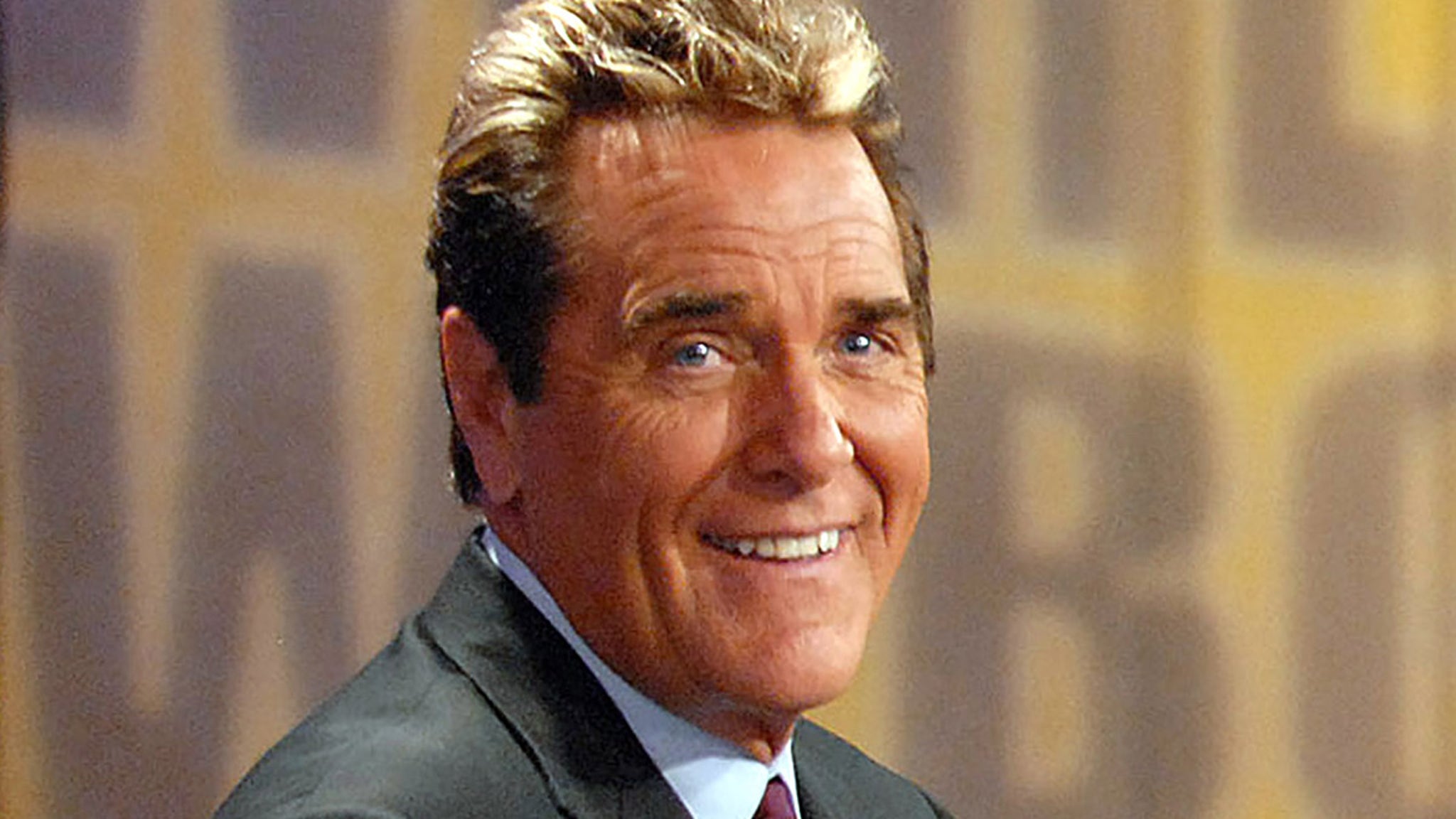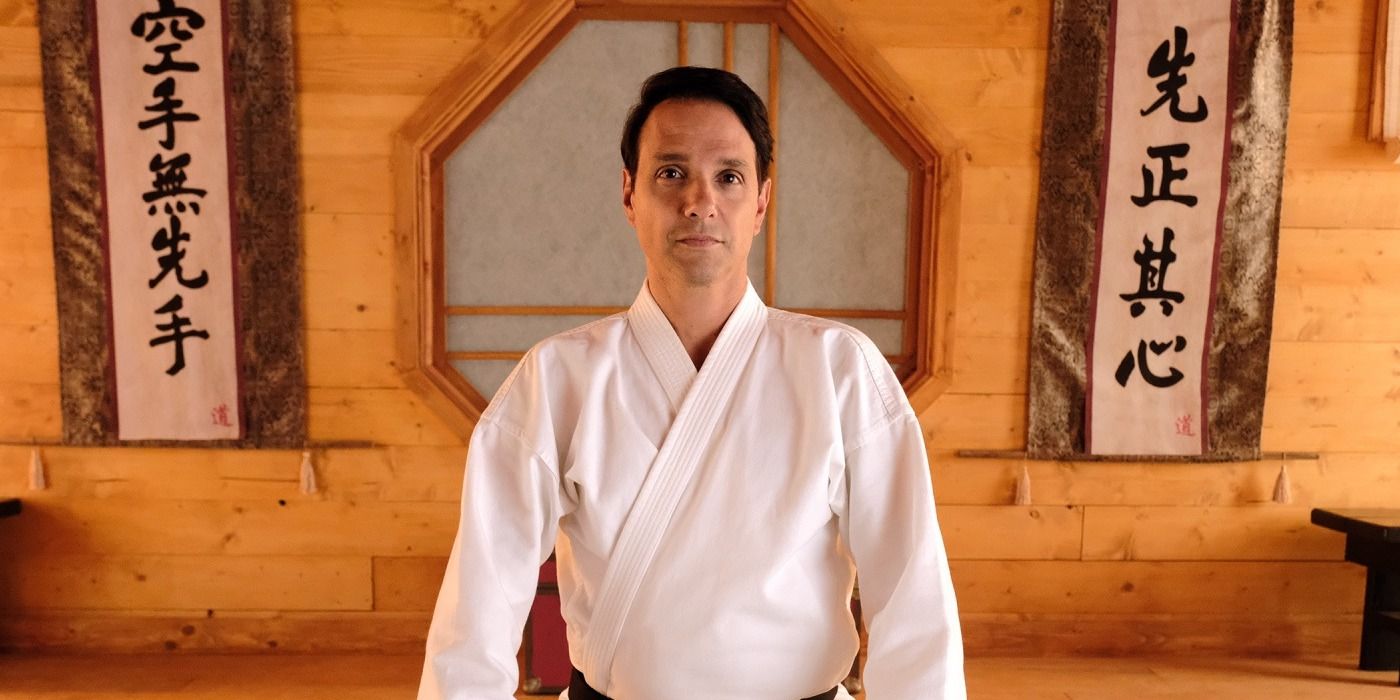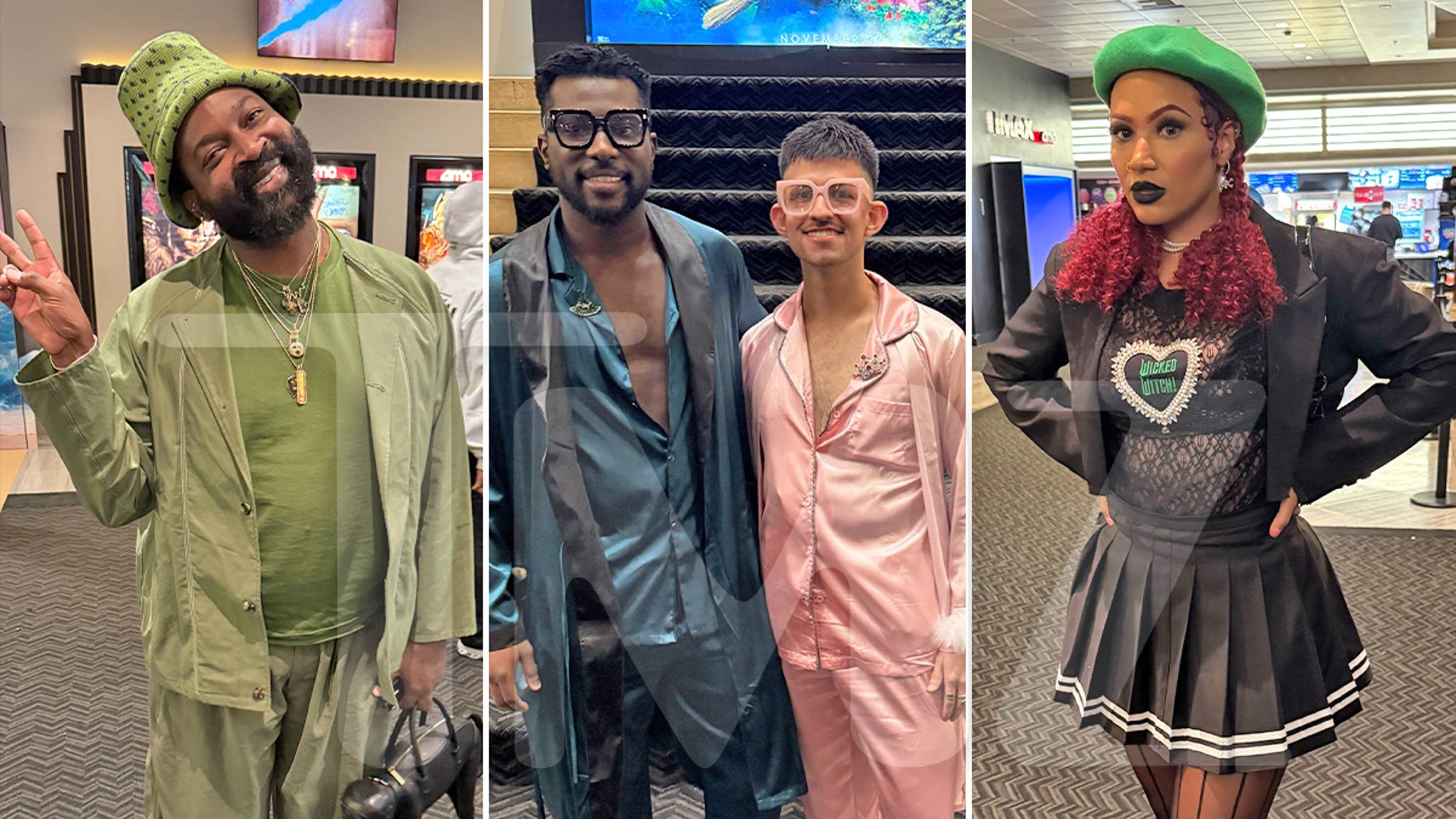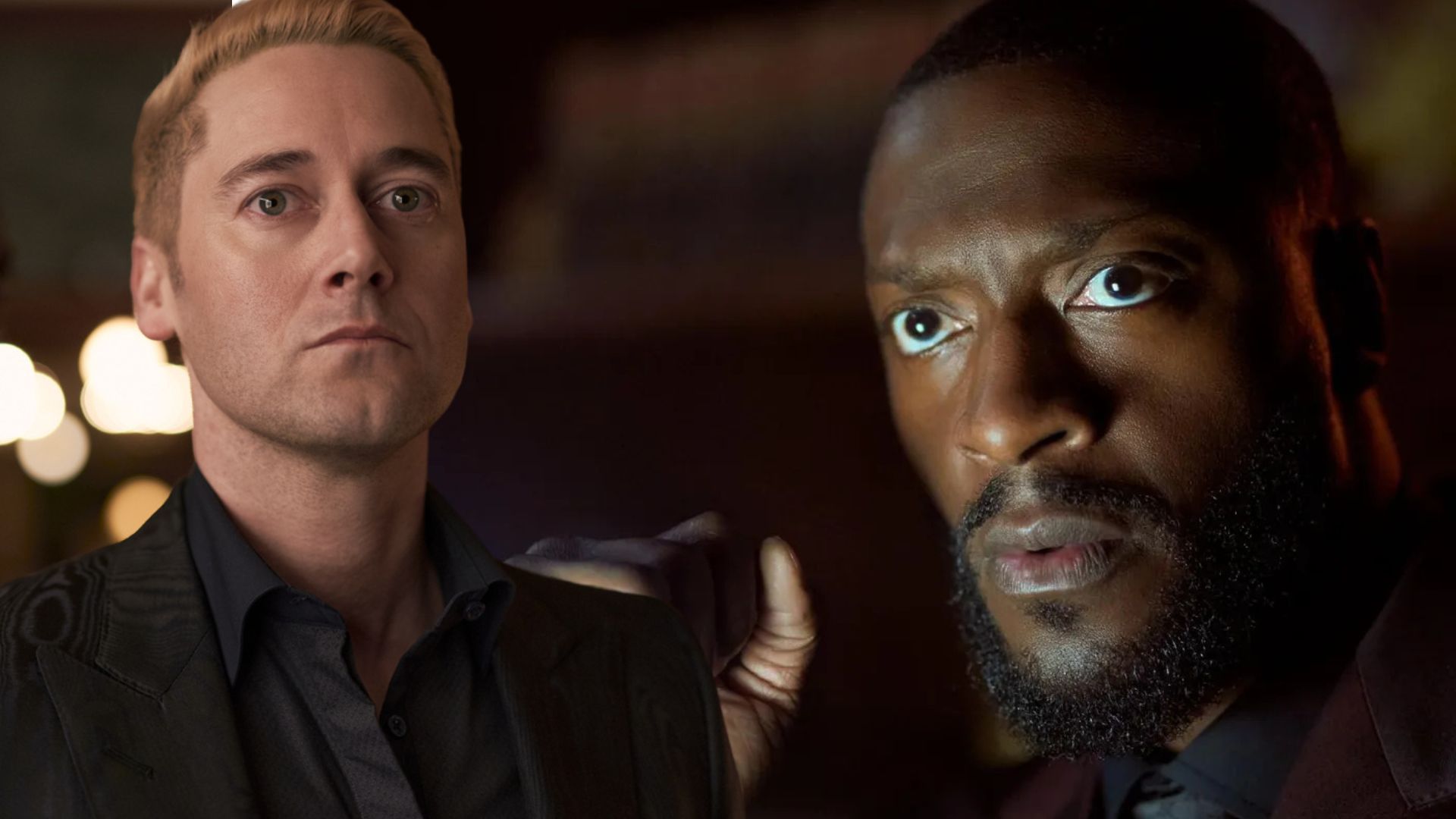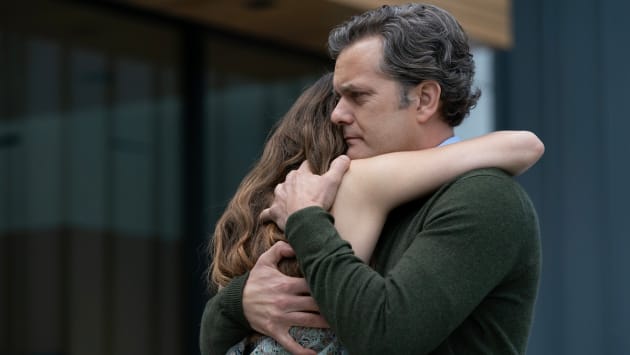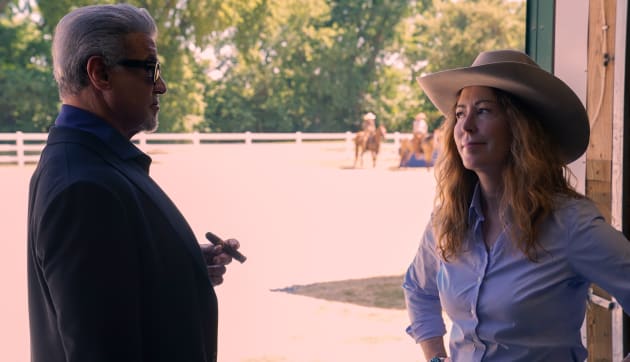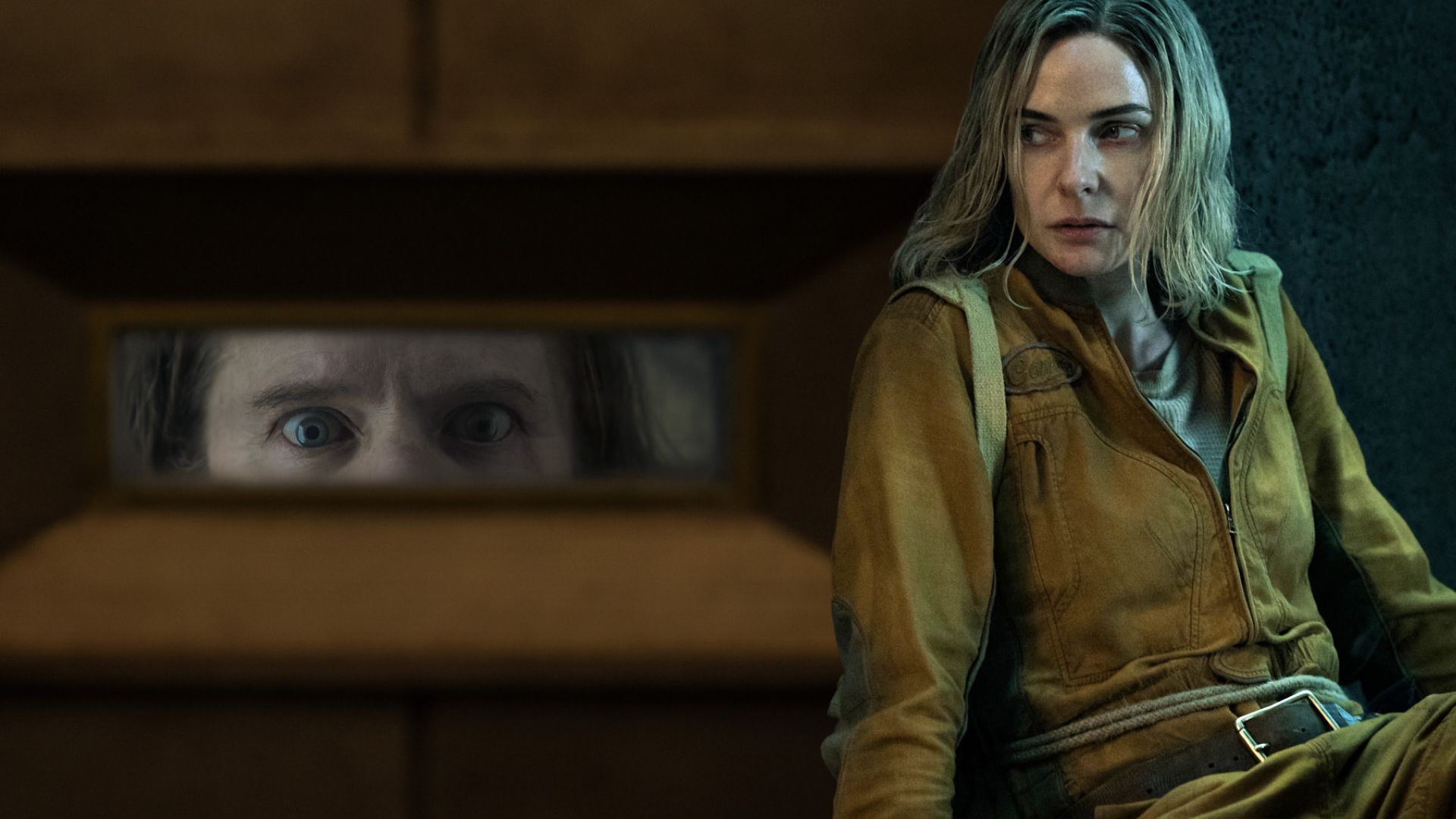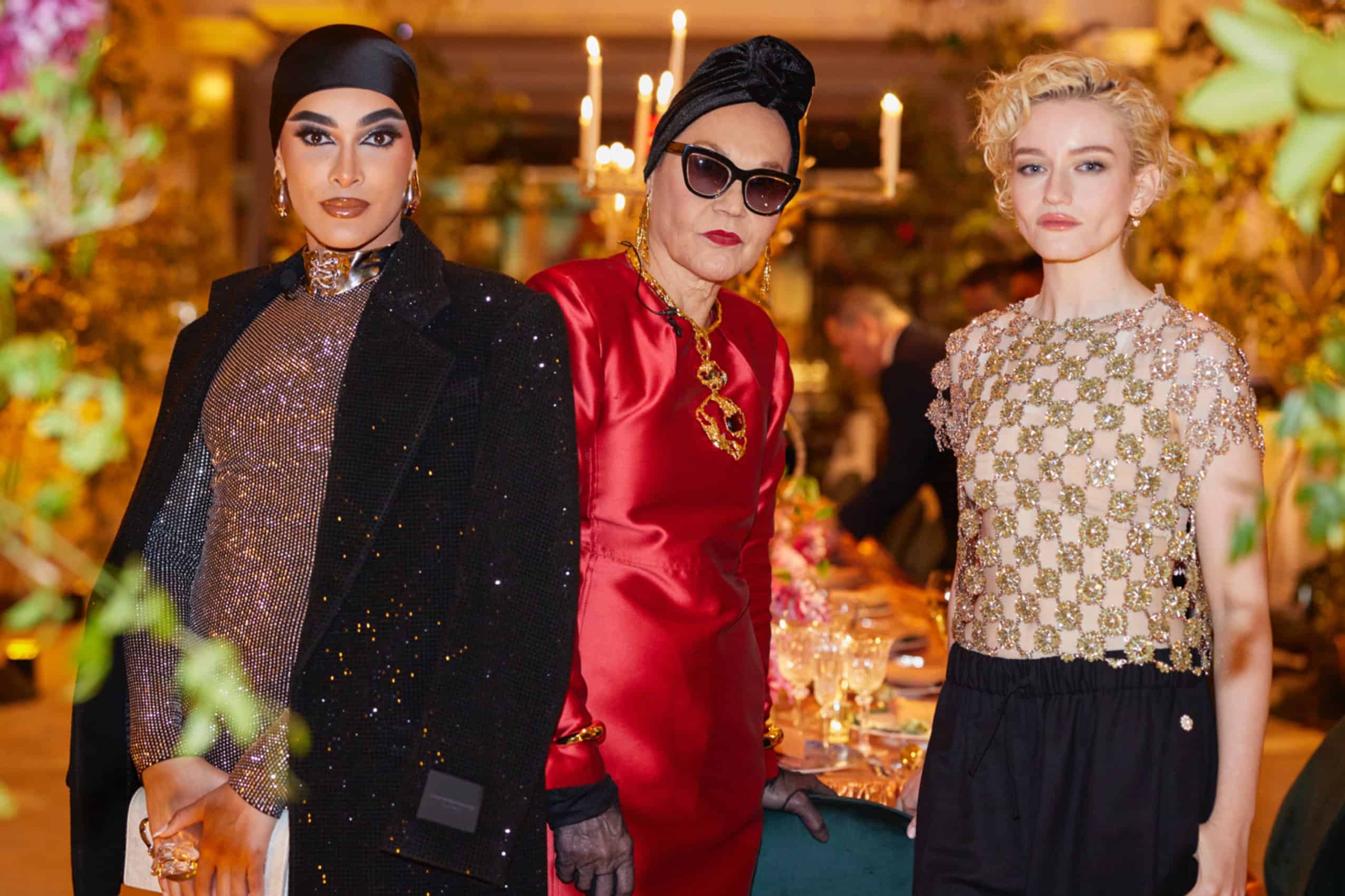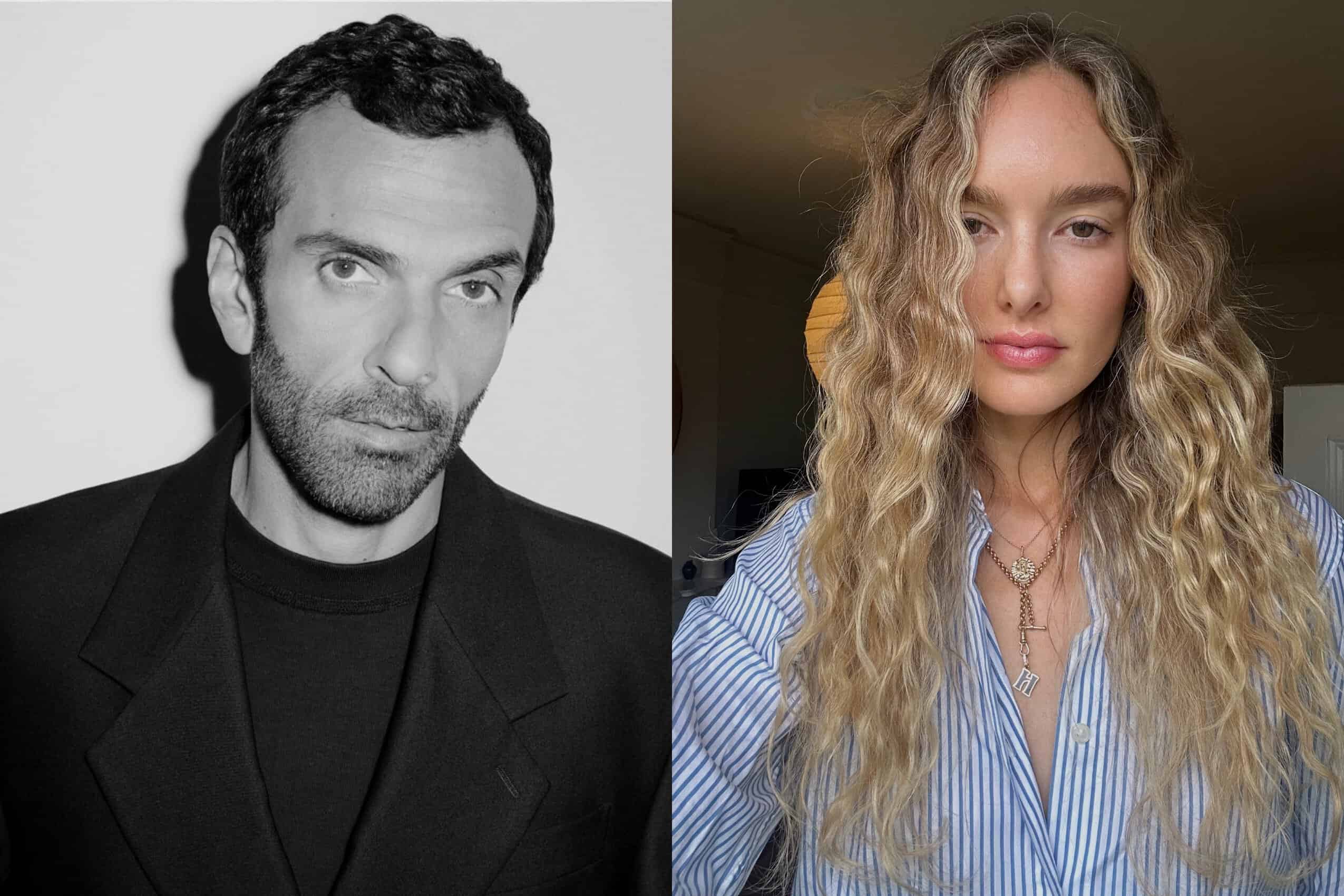And now we know who killed Alex.
Did anyone else see that coming at all? The two-hour finale delivered at least two big twists, with the real person behind Alex’s death by the end of Fatal Attraction Season 1 Episode 8 and the open-ending that could lead us into another season.
It seems Ellen’s time with Alex in that park many years ago was impactful, and she also struggles with the same obsessive affliction.
We also got the most realistic outcome ever with Dan’s attempt to reopen his case and have a new trial. The judge who gave him her ruling stated they’d spent enough time on it and gave him a fair shot at justice the first time.
Unfortunately, “Mr. Privilege,” Dan, cannot simply emerge from prison a decade and a half later with all the new leads, assistance from his best friend, and support from his family to retry something that he could’ve fought harder and better the first time around.
In the end, Dan’s own pathological lying and arrogance landed him in that prison cell more than circumstantial evidence and any jury of his non-peers ever could. He’s smart enough to have known the affair would come out regardless, so not getting ahead of it was unfathomable.
And as much as it sucks that the very beast of a system that he worked for chewed him and spit him out, it’s poetic in that sense and works at a wonderful indictment on a system that isn’t a body as we’re often led to believe, but a machine and a tool.
Winning can’t be the goal when winning isn’t possible right?
Therapist
But this two-hour finale was gripping, albeit meandering and at times repetitive, in that it once again had a blast shifting perspectives, and we got some of the insightful peeks into Alex’s life yet with Fatal Attraction Season 1 Episode 7.
Her relationship with both of her parents was so toxic that she likely never stood a chance.
It was jarring to see how they treated her like one of their peers, respectively, speaking to her as no parent should with a child, putting her smack dab in the middle of their marital issues and complaints about one another.
Stan made her complicit in his infidelity, some active partner pulling the wool over, gaslighting, and disrespecting her mother. Alex at it up because she relished any attention her father directed her way.
But it was hard to keep Stan’s attention long, as he was about as careless with Alex’s heart as his wife’s. It took nothing for him to be distracted by some new woman, and he’d take from Alex to pour into that woman.
But he was manipulative and cunning enough to reel Alex back in whenever he felt he was losing her again. Her father was a raging narcissist, so self-absorbed and self-serving, and she was a victim of it like her mother.
And through that relationship with this man, she considered her best friend more than an actual father; we saw the origins of her neediness and her constant desire for male attention.
We see these glimpses that make sense why she craves male attention so much and desperately does whatever she can to get it, molding herself around the men she meets and whatever interests them to get and keep whatever attention they dole out to her.
I should call the cops and report you missing. Tell them you’re a danger to yourself. That’s what you deserve. You expect people to care about you when you treat them like this? Not to mention if no one knows where you are, what are you going to do when you need something? Because you are going to need something, honey, you’re a fucking black hole of need.
Stan
And her relationship with her mother, however fraught, also explains why she had standoffish regard for other women.
It was such a profoundly ingrained type of misogyny, thanks to her father’s rampant spew when speaking of her mother and her mother’s terrible treatment of her when unloading all her frustrations and furies with this child.
It made sense why Alex was so standoffish and cold with her neighbor one minute, then lapping up the nurturing energy the woman gave her the next, as it was unlike what she’d experienced with her mother.
Again, all these little tidbits and peeks into Alex’s perspective of things were great at filling in and adding more layers to her than we ever would’ve previously had, though we most likely assumed or psychoanalyzed on our own.
I have spent my entire life in the service of justice. It would go against everything that I believe to take someone else’s. No matter how afraid I just couldn’t do that. Not to Alexandra Forrest, not to anyone else.
Dan
Part of Alex moving to L.A. in the first place was to escape Stan and cut things off cleanly with him so that he no longer had this hold on her life. He was an expert, giving her all the attention she craved, then cutting into her just as quickly, shaping her life into trying to please and appease him and serving his ego.
His reaction when he left, and how he verbally abused her when she dared to cut ties, was very telling. She fell right back into that toxic bond again once she got there, calling him to tell him about Dan, desperately trying to prove that this man was the perfect guy for her and she’d found the type of love he only chased after but never succeeded.
It’s a shame that, in the end, Alex never had any real friends in Los Angeles, something we saw her struggle with during Fatal Attraction Season 1 Episode 3. It was her toxic father she confided in, and he was the one who told her to run and leave.
They had such weird codependency on one another despite him being no good. It made you sympathize with this woman whose only solace and most vulnerable, genuine moments appeared to be when she was helping victims in her program.
It’s about the only time it felt like we saw who Alex could be, if not bogged down by her past, trauma, and mental illness.
Although she was a conundrum, she told a young Ellen that you leave people before they can leave you. But if that were the case, it makes you wonder why she fixated on Dan for so long, even after it was evident things were over on his end.
She seemed to want to be the person who could leave others before they left them, but save for her father, whom she returned to in some capacity, she never managed to pull that off.
Unfortunately, her efforts to leave the night she did came too late.
The events of her death turned out to be unexpected yet a bit disappointing.
In all this timeline jumping and perspective shifting, we glossed over so much of the actual murder investigation and how they built their case.
We went from them not finding a body to discovering it at the marina, disrupting what they initially were selling us as a murder case with no body. And we have no idea what led them from that apartment building to that.
Dan’s arrogance, poor management of his case, and pathological lying were meant to overshadow the fact that investigators were still laser-focused on him initially and essentially built their case around proving him guilty rather than learning the truth or seeking justice.
Murder is a brand now. You want people to know you’re not a killer. But a lot of them would like you better if you were.
Jorge
And the entire court case was irritating. Again, like a dead horse, they’ve beaten the “privileged Dan” thing into the ground, and apparently, that’s why the prosecution won this case.
To some degree, they’ve made a mockery of what people are actually critiquing when they speak about privileges with whatever this thing they’ve done by putting Dan on trial for essentially being a well-off white man and then sending him away for something he didn’t even do.
For the trial, I genuinely was waiting to see some abhorrent display that utterly trashed Alex and mentally ill people, but that never actually came.
Merely acknowledging that this woman was unstable and did some terrible, disturbing things doesn’t count as putting the victim on the stand and eviscerating her when it’s simply someone pointing out the truth.
But they built up this idea that the all-powerful, entitled, and privileged Dan used Alex for sex, discarded her and disregarded her feelings, and then took things into his own hands when he triggered her to act out.
But in all of that, they excuse Alex’s actions. The blase reaction to someone not taking no for an answer and escalating to dangerous levels is absurd.
I’d imagine that any footage Mike still had of Alex throwing acid on Dan’s car during Fatal Attraction Season 1 Episode 4 or Ellen’s damning testimony about the woman essentially kidnapping her would amount to something.
They strip Alex of any agency for the sake of woobifying her for her mental illness, which in its own way is counterproductive and problematic. Alex being mentally ill does not excuse MURDER!
And just as Dan using any form of power that tinged the dynamic of their sexual relationship is an issue, wouldn’t Alex’s unwillingness to hear and accept a “No” trigger some of the ongoing consent discourse that falls under the same umbrella?
“No means no” for everyone, not just women, right? It’s not on Dan that Alex didn’t accept him breaking things off with her, so I genuinely do not understand why they wanted to crucify him for “leading her on” and so forth.
Do they NOT hear how this mirrors the same problematic discourse about sexual assault victims? It’s no less valid or problematic because Dan is the recipient.
Sometimes it feels like they’ve tried so hard to add context and make Alex sympathetic to avoid outright vilifying her that they’ve, in turn, actually made Dan that person instead, which presumably was not the full intention of delving into this deeper.
And in their effort to assign Dan some culpability and blame for his actions, they’ve overdone it to the point that they’ve made him a victim of Alex’s mental illness, yes, but also of the system.
And Alex was still a villain, by the way; her mental illness, background, and more context did not absolve her from that title.
By the end of the series, Alex is still a woman who killed Beth’s mother, tried to kill her, kidnapped Ellen, and inadvertently passed on her pathos to this child, who grew up to act the same things.
And Dan is the man who went to prison for 15 years for a crime his wife’s best friend did, came out to his ex-wife married to that man, and his grown daughter calling the man “dad.”
Presumably, that Dan made it out of this tale alive is what makes him the lucky one and also the person we’re supposed to resent because mental illness isn’t supposed to be a death sentence.
But was that meant to be the message here? Because unfortunately, they’ve depicted Alex doing so many awful things that it’s much easier to conclude that she was a victim of “Fuck around and find out.”
They attempted with her death scene, as we saw that she intended to leave altogether, meaning she was retreating from all the havoc she wreaked on Dan’s life and those of his loved ones.
And we’re supposed to take that as a reason why anyone attacking her at that point wasn’t fair, was punching down, was cowardice and violent, and she was exclusively a victim by then.
And she was indeed in that regard, but as awful as it sounds, by that stage, after what we saw and knew that she did and the prospect of her getting away with all of it, too, they undercut their own point.
No, Alex didn’t deserve to get murdered, no one does, but that’s it, too; NO ONE does, including Beth’s mother or Beth, had she not made it out of that fire. Violence begets violence, too, and by depicting Alex as not this scorned woman lashing out but actively, consciously, knowingly violent, things get muddied here.
Glossing over Alex’s ills hasn’t helped the cause here, either. She contained multitudes. She could be this wonderful woman who helped victims and still be this unhinged woman who harassed multiple people and did bad things. Clipping her of that to make her some saint in court doesn’t elicit the intended response.
Did we ever know for sure if Alex was pregnant? They showed her pregnancy tests, and she mentioned it to a colleague and to Beth during that surprising sit down.
Beth: Did you do something to my mother?
Alex: I’m pregnant.
Beth: I don’t believe you.
But I can recall that it wasn’t brought up during the trial or the investigation.
Interestingly, that was the final straw for a dark horse and suspiciously too pure for this world character Arthur. We noted multiple times, from Fatal Attraction Season 1 Episode 2 and onoward that Arthur seemed too perfect, and now we get to see why. Did anyone anticipate he was the one who killed Alex?
And we even got to see the distinction of what he could’ve been charged with had the real story come out. He thought he choked her to death, sat there for a bit, and she crawled toward her phone for help; he hit her in the head.
There’s no mistaking his intentions. If he went there in the heat of the moment and sat on that couch wondering if he made a mistake, he certainly obliterated that when he whacked her head in and disposed of the body.
And we’re led to believe that it’s something that he could’ve planned rather extensively. Arthur became such a convoluted man.
He dutifully cared for his dying wife with everything he had and loved her, but what was his thought process when it came to essentially taking Dan’s place in his own family?
Was it that he saw his duties through to the end with his wife and then saw his chance to be with the woman he’s probably always loved since college?
Was killing Alex the act of a protective friend or a man doing anything for the woman he loved?
And what are we to make of him sitting on the truth for so long and seeming unfazed by his actions? Sure, he approached a lawyer about it and wanted to come clean after his wife died.
But the moment he realized that Dan’s imprisonment was less about justice and more about political grandstanding, he let sleeping dogs lie.
It’s no wonder he didn’t bat an eye at putting all his money into helping with Dan’s defense, and he’s been the one to speak in Dan’s favor in the present.
Arthur knows that this man went to prison for something he did and has benefitted greatly. In that sense, he feels a twisted sense of gratitude toward Dan.
It’s so twisted, and I don’t know how I feel about Arthur emerging as the real killer, his motivations for it, keeping a secret this long, and “winning” in the end.
In some ways, it feels like a twist for the sake of it.
But these secondary people in the Gallagher marriage took advantage of the cracks, one got everything from it, and the other got dumped in the water.
What I did appreciate was Mike’s conversation with Arthur at the funeral. If there’s anything that this show has done, it’s served as a scathing indictment against the justice system.
Mike put his feelings into words summing up in that exact moment why he had grown disillusioned with the system, and you could tell that must’ve been the turning point for him when he stopped being a cop. It was a powerful statement about the system being a machine, not a body, as they often suggest the law and all of its factions are.
It sucks people in, chews them up, and spits them out. The wheels of justice are churning robotically with no regard for the effects.
And everyone suffers from it, the victims of crimes, the perpetrators of them, the enforcers of the law, solicitors, it doesn’t matter.
It was a moment that was personally striking and even resonant as someone who once had an interest in and actively pursued that system.
It was a fitting moment for Mike, who has genuinely been the brightest spot and most compelling aspect of this series, as we’ve noted multiple times in our Fatal Attraction Reviews. There isn’t a single moment when he didn’t steal the show and temper everything happening around him.
And somehow, the dynamic duo of Dan and Mike got extended to a trio with Earl, and somehow, I’d watch those three endlessly as they reopened cases and investigated matters.
It’s an untouchable dynamic rife with entertaining drama and comedy and one I wish we spent more time on overall.
Aside from Lizzy Caplan’s captivating performance of Alex throughout, she really has done some remarkable work at bringing the nuance to the character of Alex that only sometimes came through with the actual writing — these two hours dragged in ways that weren’t warranted.
We spent too much time on things we didn’t necessarily need and not enough time on more interesting things.
For example, too many flashback angles and perceptions of the same things fall into themselves.
But one of the worse examples of this is with the very thing that became a cliffhanger and left things open for another season: Ellen.
One of her best moments of the finale was sitting in the bar and having drinks with her father, another being that hug between the two and his immediate reaction afterward.
With Ellen, it felt like we’d get a deep dive into how her life was affected by her father’s imprisonment and how she and he could rebuild the close bond they once had.
However, she was (understandably) cold and distant for a large part of the season with very little else, and we didn’t spend as much time with her and Dan exploring their relationship.
I would’ve given anything for more of their interactions, and Jackson and Jirrel’s chemistry was intriguing.
But Ellen disappeared into a side plot that included narrating and drawing parallels to Alex and Jung’s theories. And we knew that her arc had to be going somewhere. Otherwise, they would be bothered showing it, but it was so slow, tedious, and uninteresting that it took a lot of work to invest, even knowing that.
Then they pulled out that final twist of Ellen essentially being like Alex, too. She’s the new fatal attraction, some aberration of her father’s misdeeds, her mother’s pain, and this impactful moment in a park with her father’s mistress that somehow groomed her and laid the foundation for whatever Ellen has become.
With this twist, they’ve opened the door for a second season and new things to explore.
But they’ve also essentially undone whatever goodwill work they were trying to do with nuance and the stigmatization of mental illness with Alex.
Or maybe the thought process is that they spent some time trying to humanize and add layers to explain why Alex was the way that she was, so by the time we see that Ellen, who is a product of her environment but decidedly more stable, healthy, and privileged, we’d see the distinction between the two.
Alex had reasons that shaped how she became what she was. In contrast, Ellen could be a quirk of biology—a girl naturally inclined and predisposed to hovering around sociopathy and erotomania.
Alex: Who you can trust and who you can’t. I know you probably think you can already tell, but I promise you you really don’t. Your parents they’re pretending that nothing is wrong, they’re saying that everything is okay, but it’s really not. they’re lying to you. Both of them, but especially your dad. It doesn’t mean that he doesn’t love you. I know that he does, Someone can love you and still lie to you. Some people, it’s just what they do. It’s what the world is like, but you can handle it if you know how.
Ellen: How?
Alex: you let them think they’re fooling you. You act like you believe them, but you never forget who they really are, and you never let them stop you from getting the life that you want. And if they try, you leave them. They don’t get to leave you.
To which I say, what in the YOU‘s Joe Goldberg was that ending?
As a slow-burn thriller, the series does okay. When it takes itself too seriously and tries to invite social commentary, it makes a muddled mess of things that only elicits more criticism.
But the cast has been stellar, and it’s been quite a ride.
Over to you, Fatal Attraction Fanatics.
Did you predict Arthur killed Alex? What do you think about that ending with Ellen?
Would you be interested in a season two? Sound off below.
Edit Delete
Jasmine Blu is a senior staff writer for TV Fanatic. She is an insomniac who spends late nights and early mornings binge-watching way too many shows and binge-drinking way too much tea. Her eclectic taste makes her an unpredictable viewer with an appreciation for complex characters, diverse representation, dynamic duos, compelling stories, and guilty pleasures. You’ll definitely find her obsessively live-tweeting, waxing poetic, and chatting up fellow Fanatics and readers. Follow her on Twitter.
You can view the original article HERE.



